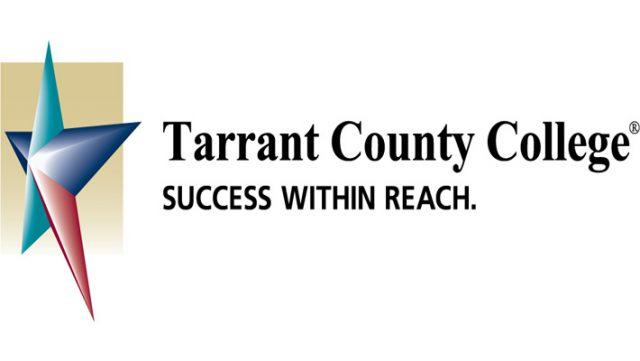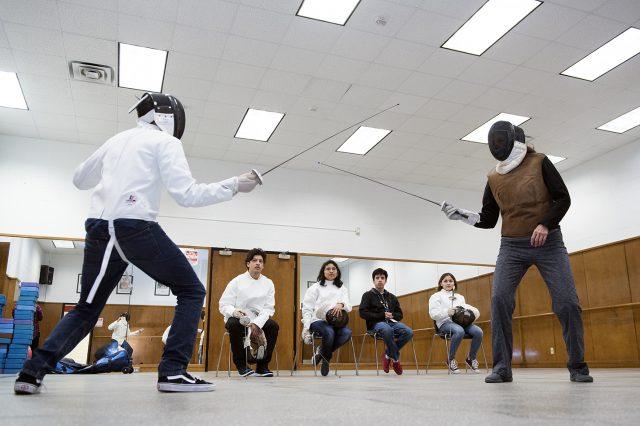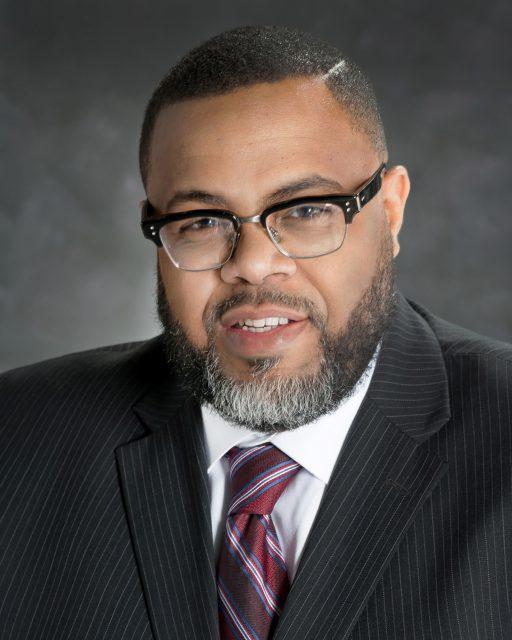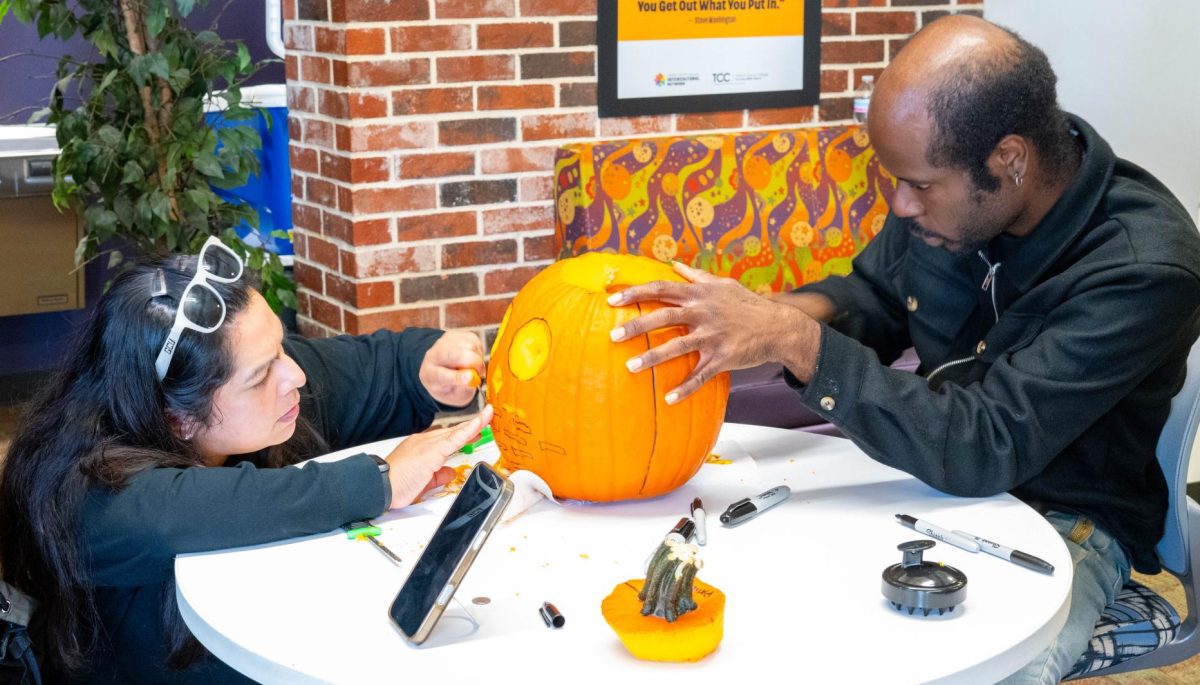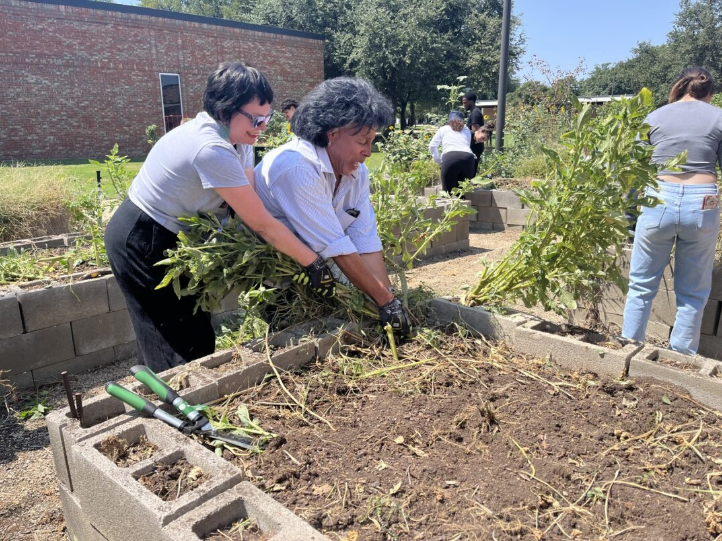By Kathryn Kelman/editor-in-chief
South Campus’ homeless outreach program has recently acquired an abundance of donations from community partners totaling over $30,000.
Visions Unlimited, one of the five community outreach programs TCC has, was established by South Campus in 2007 and conceptualized by the late chancellor Erma Johnson Hadley. Through a team of South faculty, staff and community partnerships, the program works to provide a pathway to higher education for persons currently residing in homeless shelters, said South psychology assistant professor Tina Jenkins, the project manager for the program.
“There isn’t another program like this one in North Texas,” she said. “We’re very proud of that.”
The program partners with three Tarrant County homeless shelter providers, Union Gospel Mission, the Salvation Army and Presbyterian Night Shelter, to screen and identify people who would be a good fit.
“Students must be currently residing in one of the shelters and be referred by a case manager to enter the program,” said Jenkins, who works closely with the case management staff and administrators at the homeless shelters.
Vision Unlimited’s mission is to inspire self-sufficiency in individuals and families by mobilizing, equipping and empowering them. Parts of the program that encourage the development of students’ academic and personal lives include the blending of psychology courses early on in the program, work-study program participation, free lunches on days they’re on campus, assigned counseling and follow-up sessions and helping students with access to financial resources to promote retention and success.
“Visions Unlimited also offers mentorship by pairing a new student with a student that has already completed their first semester in the program,” Jenkins said.
Through community initiatives and collaborations, Visions Unlimited also helps supply books, school supplies and bus passes to students for the first semester.
Fort Worth Housing Authority is one of the community partners of the program and they designate a small amount of subsidy housing vouchers to the program to help Visions provide incentive and reward students excelling and meeting criteria standards set by both TCC and the housing authority.
Amerigroup, the nation’s largest health insurance and managed health care provider for public programs that offers care through three government programs and targets low-income segments of the population, and two churches in the Fort Worth community donated funding for the program because they believe in it, Jenkins said.
The program has a great purpose and reputation within the community and because of that, organizations want to support it, Jenkins said.
Amerigroup donated $25,000, the First Presbyterian Church donated $4,500 and St. Paul United Methodist Church donated $2,595, Jenkins said.
The large amount of donations, totaling $32,095, received in the last few months is listed among the program’s “Starpoints of Success.”
“We want to share how much we greatly appreciate the generous donations that these entities have bestowed upon these programs to expand services to our students in need,” she said.
The money St. Paul donated came from a fundraiser the church does every year for the program that South math instructor Maggie Foster started.
Foster, a member of the church, met a Visions Unlimited student who worked in South’s math lab. One day, Foster said she overheard the student talking about a shelter and asked her to explain.
“She said she was homeless and living at the shelter. I then said, ‘But you are a student here,’” she said.
That’s when she learned of the Visions Unlimited program.
“I thought, ‘How do we have this really great program to help students and know nothing about it?’” Foster said.
After the conversation with the student, she reached out to Jenkins to learn more and thought maybe her church could help, Foster said.
Foster and her church now host a “Taco Pile-Up Lunch,” where they accept donations for the program from those who attend. Last fall, the church held its seventh annual scholarship luncheon, she said.
“Jenkins arranges for a student or faculty member involved in the program to speak during Sunday worship, and then we all have lunch afterwards,” Foster said, adding that South Campus president Peter Jordan and other administrators and colleagues have attended the luncheons in past years.
The fundraiser is named the Bob and Dolores Foster Scholarship Luncheon in honor of Foster’s parents who were charter members of the church, and so far it has been working well, Foster said.
“What better way than to fellowship with friends and support a great cause?” she said.
Foster sees value in supporting the Visions Unlimited program, she said.
“It changes lives in a positive way, giving people back their confidence and self-reliance,” Foster said.
South academic adviser Deshun Jackson is one of the two advisors that helps students in the program and said they are excited about the donations because it will help them provide students in the program with additional resources and hopefully help them service more students.
“The students in the Visions program are so grateful and thankful for this program because it’s a program of second chances,” she said. “The fact that TCC South Campus is the only campus that actually has this program is really what makes that program stand out.”
Jackson wishes every campus had the Visions Unlimited program so they can help more people. She’s hopeful that the more funding they get over time, the more that could become a possibility and therefore the more people they could help, she said.
“With the program, there’s always a waiting list and you want to service everybody, but because there’s a waiting list, you can’t,” Jackson said. “So hopefully, more funding will be available, so we don’t have a wait list.”
No set plans for the money have been made yet, but both Jenkins and Jackson are excited to explore the expansion of the services the program currently offers students and are in the process of discussing those possibilities.
“There are just situations and costs that these students have sometimes that we haven’t had in the past funding to address, but now, we have a means to be able to utilize this money to maybe help them in some of those ways,” Jenkins said.






















